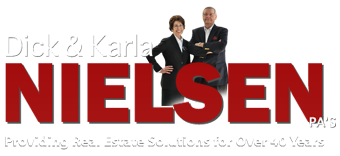Do You Know What Influences Your Mortgage Interest?
Guest Contributor
Maura Klein of NFM Lending
 Have you ever wondered what factors affect your mortgage interest rate? There are both internal and external factors influencing how much you will pay when you borrow money to purchase your new home.
Have you ever wondered what factors affect your mortgage interest rate? There are both internal and external factors influencing how much you will pay when you borrow money to purchase your new home.
Some internal factors (directly tied to the loan itself) affecting mortgage interest rates:
- Loan program the borrower chooses, i.e. conventional, FHA, VA
- Term of the loan
- Loan amount
- Loan-to-value, i.e. loan amount / value of the property
- Borrower(s)’ credit score
- Location of the property
Some external factors (not directly tied to loan) affecting mortgage interest rates:
- Inflation
- Economic growth
- Federal Reserve monetary policy
- Bond market
- Current housing conditions (can vary geographically)
Internal factors are self-explanatory, but the following specifically addresses some external factors affecting your mortgage rates.
Inflation – As prices increase due to inflation, the purchasing power of dollars may erode over time. This is an important factor for banks and mortgage lenders. Interest rates need to be maintained at a level that is at least sufficient to overcome this erosion of purchasing power so that these businesses can continue to make a profit. If mortgage rates are at 4.5% and the inflation level is at 2%, the return on a loan in terms of purchasing power is 2.5%. This requires mortgage lenders to carefully monitor the rate of inflation and adjust rates accordingly.
Economic Growth – Growth indicators such as the GDP and the employment rate can also influence mortgage rates. Higher economic rates usually relate to higher incomes and increased consumer spending, which can increase home purchases and the need for mortgage loan financing. An increase in the demand for mortgages will typically result in increased mortgage rates. This is basic supply-and-demand economics, as the demand for the supply of money increases. The opposite effect will occur if employment declines or wages decline, etc.
Federal Reserve Monetary Policy – This is probably one of the most important factors to influence the economy and the interest rates. While the FR does not set interest rates, its actions do have an impact in the public’s interest rates. As another example of supply-and-demand — increases in money supply can bring rates down and decreases in (or tightening of) the money supply can add pressure to increase interest rates.
Bond Market – Mortgage Backed Securities (MBS) are investment products marketed by investment companies and banks. They compete for investors with other bonds offered, as they are attractive to those looking for a stable, low-risk investment. Hence, higher yields on these securities are, of course, more attractive. The overall condition of the bond market (inclusive of competing bonds such as government bonds), therefore, indirectly affect the mortgage rates that lenders charge.
Current Housing Conditions – Housing is also tied to supply and demand. If there are fewer houses for sale on the market, this can lead to a decline in home purchases resulting in a decline for the need for mortgages, which can decrease interest rates. The same effect will result when more consumers choose to rent versus own a home.
Predicting Future Mortgage Rates
An article from HousingWire earlier this year states, “Goldman Sachs’ analysts are predicting that the 30-year mortgage rate will rise to 5.5% by 2019, representing an increase of roughly 150 basis points, or 1.5%, over the next couple of years … [with] Treasury yields and investors demanding higher compensation to own mortgage-backed securities.”
Recent opinions from those in the industry seem to lean towards rates increasing slightly in the near future to rates remaining unchanged, but not decreasing. Consult with NFM Lending or contact your local mortgage loan officer to find out more information for specific factors influencing your mortgage rate.
As a Loan Originator at NFM Lending in Sarasota, Maura Klein specializes in helping buyers with residential mortgages. Maura may be contacted by phone at Cell 941.981.2322 or via e-mail at mklein@nfmlending.com. She would be happy to answer your questions about the loan process, or meet with you in person to discuss your loan options. Visit www.nfmlending.com/mklein for more information.
If you’re a Florida resident needing help selling your property or finding a new home, call Dick and Karla Nielsen at 813-294-5786.
Photo: Source







